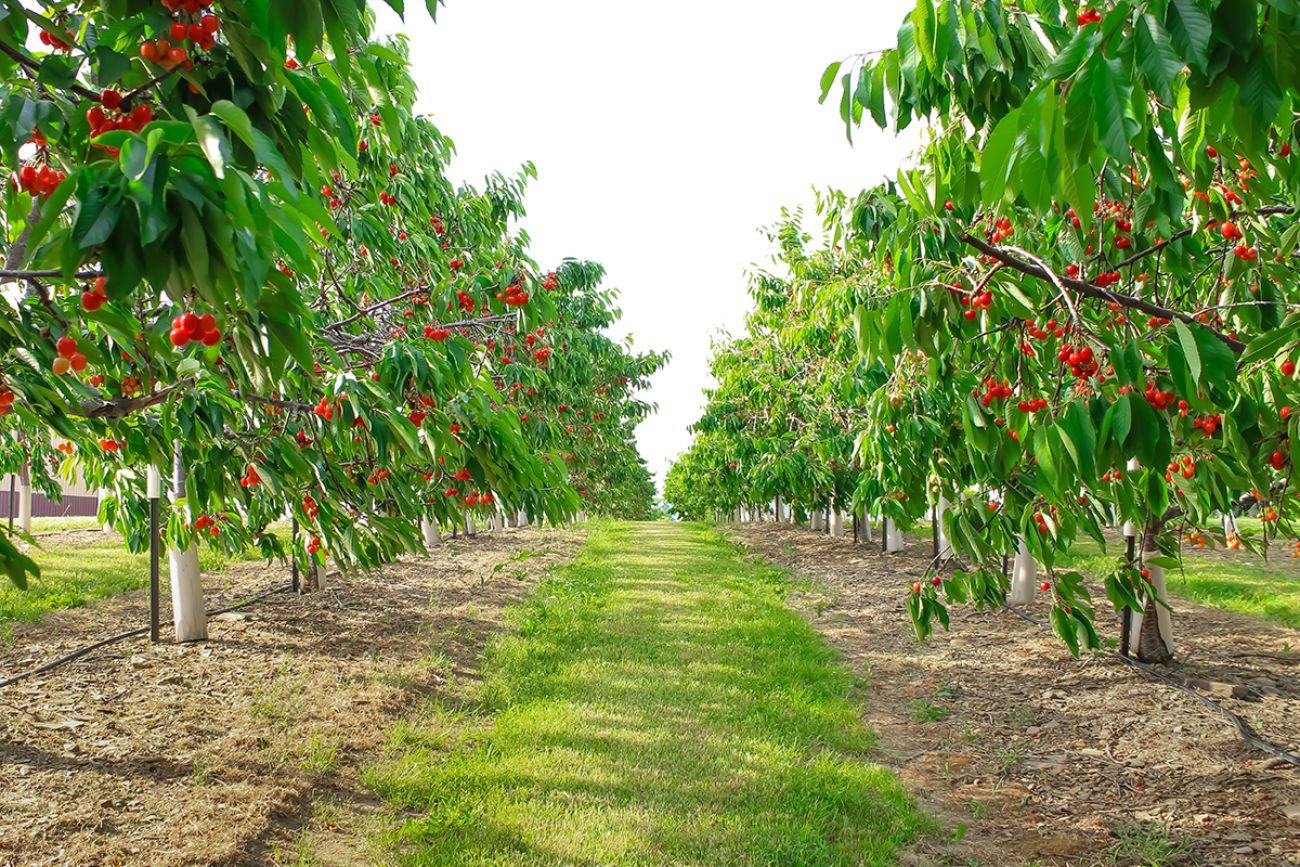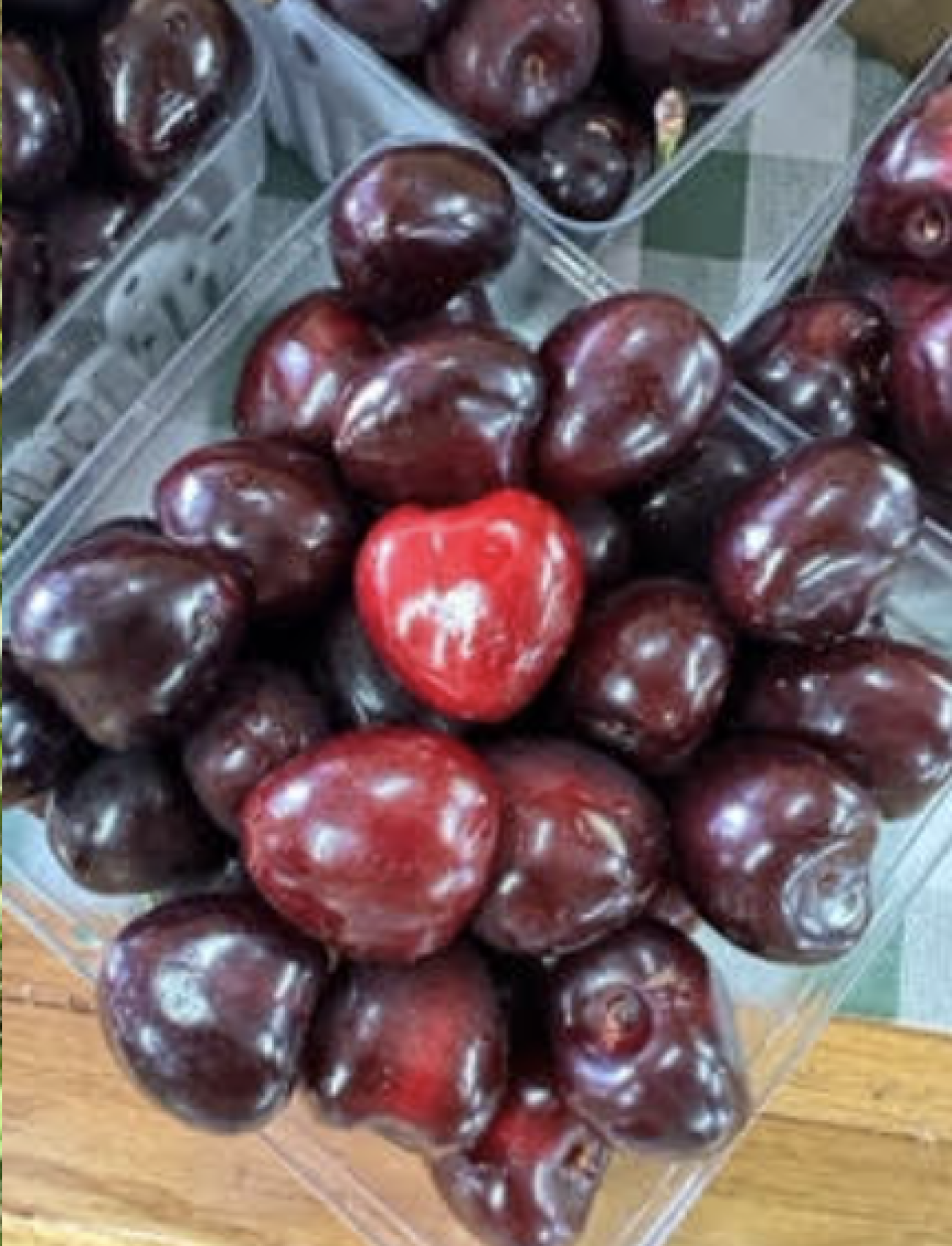Disaster relief loans available for cherry farmers in 11 Michigan counties

- Emergency disaster relief is available to Michigan cherry farmers, who lost over 75% of their crops in some cases
- The funding is available to cherry growers in 11 counties designated natural or contiguous disaster areas by the USDA
- Eligible farm operators can apply for low-interest emergency loans from the USDA’s Farm Services Agency
Emergency funding is now available for cherry growers in 11 counties across the state after a “disastrous” season destroyed nearly all of the cherry crops in Michigan.
The combination of a mild winter, early spring and heavy rainfall caused some cherry growers to lose more than 75% of their crop, according to the Michigan Department of Agriculture and Rural Development.
In August, Gov. Gretchen Whitmer requested a disaster declaration from the U.S. Department of Agriculture for emergency funding to assist farmers with crop loss.
Tuesday, the USDA declared Antrim, Grand Traverse and Leelanau counties as disaster areas and Benzie, Crawford, Manistee, Otsego, Charlevoix, Kalkaska, Missaukee and Wexford counties as contiguous disaster areas.
In the immediate term, these low-interest loans make sure that farms stay in business and that “farmers keep farming,” said Tim Boring, director of MDARD.
“Growers this year were particularly hard hit by some extreme weather earlier in the year that led to (a) proliferation of insect and disease pressure,” he said. “We know with some of our shifting climate patterns here in the state, that we can continue to expect more of this variable weather and these really significant hits to production.”
Related:
- Michigan officials ask for federal disaster declaration for cherry industry
- Michigan officials urge residents not to transport firewood
The department has partnered with Michigan State University and the Michigan Plant Coalition — a group of agricultural and commodity organizations — to establish the Agricultural Climate Resiliency Program, whose aim is to address how climate change impacts agriculture and rural development.
“As we have these shifting climate patterns, we're going to need more robust, more comprehensive safety net programs to ensure that these crops are viable, not only in Michigan but across the United States,” Boring said.
Michigan is known as the “cherry capital of the world” producing over 20% of the country’s sweet cherries and 70% of the nation’s tart cherries. Most of them come from the Grand Traverse region which produces 40% of the nation’s tart cherries.
Shifting weather, insects
“We have about 60 acres of Montmorency tart cherries and we had less than half of a crop this year due to warm weather followed by cold … so already we were behind the eight ball,” said John King, owner of King Orchards in Antrim County.
“In our case, we were seriously impacted by not having a full crop and we did go out and have to buy cherries from our neighbors,” King said.

Not only does King Orchards harvest cherries to sell but it also uses them to make jams, jellies, butters and concentrates.
Typically, cherry harvesting begins in late June and lasts through the first two weeks of August. But this year, the cherry season began early, in mid-June and lasted through early July.
The early spring created another problem for some growers: pests, one of them being Spotted Wing Drosophila, which infests ripe fruit including raspberries, blackberries and cherries.
“We did have trouble with insects towards the end,” said Dave Friedley, manager of Verellen Orchards in Macomb County. “Sadly, we did have to (leave) probably about 25% of our crop cold just because we did get an infestation of what they call a cherry fruit fly, which then puts a little worm into the cherry.”
“It was devastating,” Friedley said. “It didn’t hurt us horribly economically, but it wasn’t great.”
How to get aid
Cherry growers or farm operators in natural disaster or contiguous disaster areas may qualify for low-interest emergency loans from the USDA’s Farm Services Agency.
Eligible farmers must have an original crop loss of 30% or more and it must be verified from harvest yield data. Farmers could be granted a low-interest emergency loan to cover up to 100% of their crop loss from weather-related causes.
Applicants have up to eight months to request relief and can do so online or by contacting their local Farm Service Agency office.
“From farmers to producers to retailers, so many in our community rely on the success of crops like cherries,” said State Rep. Betsy Coffia, D-Traverse City, in a press statement. “I am glad to see the USDA make this decision to bring some relief for the devastating sweet cherry crop loss and I will continue to seek ways to do more to support our farmers weathering this latest challenge to their livelihoods.”
Business Watch
Covering the intersection of business and policy, and informing Michigan employers and workers on the long road back from coronavirus.
- About Business Watch
- Subscribe
- Share tips and questions with Bridge Business Editor Paula Gardner
Thanks to our Business Watch sponsors.
Support Bridge's nonprofit civic journalism. Donate today.
See what new members are saying about why they donated to Bridge Michigan:
- “In order for this information to be accurate and unbiased it must be underwritten by its readers, not by special interests.” - Larry S.
- “Not many other media sources report on the topics Bridge does.” - Susan B.
- “Your journalism is outstanding and rare these days.” - Mark S.
If you want to ensure the future of nonpartisan, nonprofit Michigan journalism, please become a member today. You, too, will be asked why you donated and maybe we'll feature your quote next time!




